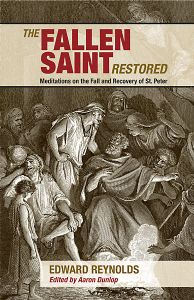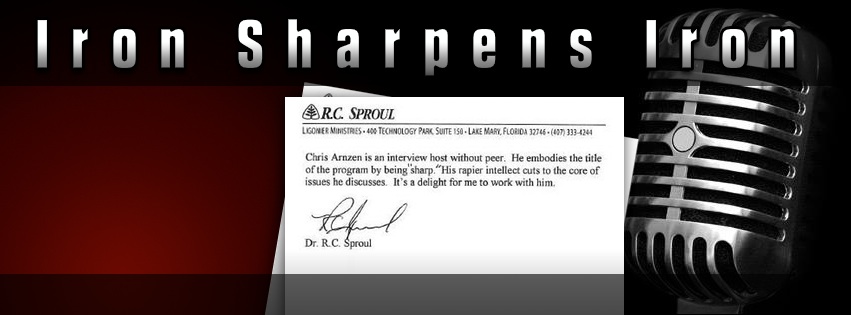




 |
|||||
 |
THE FALLEN SAINT RESTORED: Meditations on the Fall and Recovery of St. Peter
Edward Reynolds, Edited and Arranged by Aaron Dunlop![]()
"Dr. Reynolds wrote his Fall and Rise of Peter in the form of thirty "meditations," each one considering a different aspect of Peter's sin and restoration. These meditations are filled with insightful and profound thoughts concerning the fall and restoration of Peter. There is a rich reserve of Christian counsel in these meditations which show the dependence that the Christian has on Christ in all of life, both in preserving from sin and in returning from sin. They are as convicting as they are comforting. Reynolds brings the fallen Christian from the depths of sin and despair to the heights of victory in Christ. He encourages us with the power of the resurrection, the same power that drew Peter back from apostasy and raised him to apostleship. He argues that the sin, with which Satan defeated the Christian in the wisdom of God, is in fact the means whereby Satan himself will be wounded. I believe there is a need for these meditations in the world as we know it, where sin is so popular and accessible and yet so destructive. My prayer in preparing these mediations is that the Spirit of God will both warn the Christian to "take heed lest he fall" and comfort those who have been "overtaken in a fault"![]()
In editing these I have tried as far as possible to maintain the puritan style of thought and writing. I have modernized the wording in places and for clarity of thought on occasion modified the structure. I have also included some biblical references and the section heading which were not in the original edition." - Aaron Dunlop, Victoria, BC![]()
Meditations on the Fall of Peter![]()
I. The Folly of Pride and Presumption![]()
II. The Weakness of Presumed Strength![]()
III. The Blending of Flesh and Faith![]()
IV. The Error of Self-Sufficiency![]()
V. The Weakness of Human Resolutions![]()
VI. Resolutions Without Vigilance![]()
VII. Lack of Self-Denial![]()
VIII. The Beginning of Backsliding![]()
IX. The Wiles of the Devil![]()
X. Giving Satan the Advantage![]()
XI. The Power of Satan's Weak Instruments![]()
XII. Sinners: Satan's Servants![]()
XIII. Sin and Fear in Sin![]()
XIV. Tempted, and then Accused by Satan![]()
XV. The Strategy of Satan![]()
Meditations on the Restoration of Peter![]()
XVI. The Faith of Following Christ![]()
XVII. The Mercy of God![]()
XVIII. The Folly of Sin![]()
XIX. A Compassionate Saviour![]()
XX. The Use of Means in Our Recovery![]()
XXI. The Voice of the Rooster![]()
XXII. Our Dependence on Christ![]()
XXIII. The Continued Mercy of Christ![]()
XXIV. Reading the Face of Christ![]()
XXV. Happy Tears and the Words of Christ![]()
XXVI. The Abuse of God's Mercy![]()
XXVII. The Power of an Omnipresent Christ![]()
XXVIII. Shame, and the Recovery of Faith![]()
XXIX. Enjoying the Benefits of the Presence of Christ![]()
XXX. A Prayer: Grace to Stand or Grace to Weep![]()
"Every man would love God more if he could love himself less."![]()
"If he is not willing to own Christ, he will be quick to deny Him."![]()
"We know that the devil never overcomes any who is not first overcome by self."![]()
![]()
NOT YET AVAILABLE![]() SGCB Price: $3.95 (list price $6.00)
SGCB Price: $3.95 (list price $6.00)![]()
Additional Information
• Biographical Sketch of the Author
| Biographical Sketch of the Author |
Edward Reynolds (November 1599 - 28 July 1676) was a bishop of Norwich in the Church of England and an author. He was born in Holyrood parish Southampton, the son of Augustine (Austin) Reynolds, one of the customers of the city, and his wife, Bridget.
In 1615, Reynolds became postmaster of Merton College and in 1620, probationer fellow. In 1622, he was made preacher at Lincoln's Inn, and in 1631 rector of Braunston, in Northamptonshire; but in the rebellion of 1642 he sided with the Presbyterians. In 1643 he was one of the Westminster Assembly divines, and took the covenant in 1644. In 1648 he became dean of Christ Church and vice-chancellor of the University of Oxford. He refused the engagement (1651) and despite his promise of obedience to the law, but not subscription to the oath in Humble Proposals of Sundry Learned and Pious Divines (1649), this was insufficient to save him; he lost the vice-chancellorship in September 1650. He was ejected from his deanery the following March, despite a last minute pledge to subscribe in a limited sense. He preached before parliament in January 1657, and the same year he became vicar of St Lawrence Jewry, London, but was restored to his deanery in 1659.
After the death of Oliver Cromwell, he and other presbyterians sought an accommodation with Richard Cromwell, and on 11 October 1658, on behalf of himself and other London presbyterian ministers, Reynolds delivered an oral address to the new protector. In 1659 he preached at the opening session of parliament, and his sermons to parliament and London notables throughout 1659 and 1660 became increasingly pointed about the need for peace, unity, and moderation, codes for the restoration of the monarchy and accommodation with episcopalians.
At the Restoration in 1660, he was made chaplain to Charles II. In the same year he was elected warden of Merton College, and made bishop of Norwich. His contribution to the Book of Common Prayer is The General Thanksgiving prayer which is part of the office of Morning Prayer. His collected works were published in 1658, again in 1679 and, with a memoir of his life by Alexander Chambers, in 1826.
